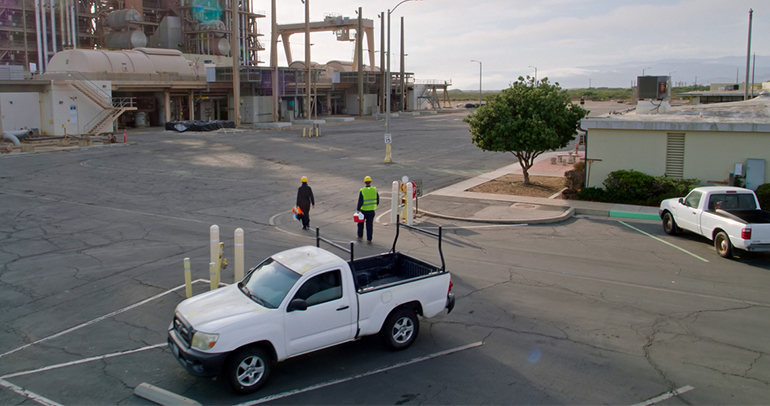
Battery electric vehicles (BEVs) are taking an increasing share of new-vehicle sales, up to around 7% nationally and 25% in California. As automakers look to continue this sales momentum to meet government mandates and help their investments in BEVs pay off, connected vehicle technology is emerging as a key selling point for shoppers.
Our EVForward™ program, representing the largest and most comprehensive study of the next generation of EV buyers, has found that technology is not only a key motivator for many consumer groups, but is also a way to overcome barriers to purchasing a BEV shared across consumer groups.
A Growing BEV Market
Rising BEV sales can be attributed to several related factors. Our research shows having friends or family with a BEV can significantly impact whether drivers consider going electric. That’s good news for vehicle manufacturers, as exposure to BEVs is increasing. In 2023, 40% of respondents said they know at least a few people who drive a BEV, up from 34% in 2022.
Similarly, more consumers are getting hands-on experience with battery electric vehicles. One in ten new car buyers indicates they have driven a BEV, a two-percentage-point jump since 2022. A further 27% said they know the BEV powertrain technology well, a 13% year-over-year improvement.
Perceptions around BEV practicality are changing, too. In 2020, the average respondent gave BEVs a practicality score of 35 points out of 100. Over the last three years, that figure has increased by eight percentage points to 43 points out of 100. That shift largely reflects the vastly expanded charging infrastructure built since 2020. The increased prevalence of charging has registered with buyers, as nearly one-third indicate awareness of BEV charging infrastructure, up six percentage points from 2022.
Our findings reveal a rapidly evolving market. EV Intenders—those respondents identified by Escalent’s algorithms as more than 15 times more likely to purchase a BEV than the average shopper—currently constitute 25% of the new-car buyer marketplace, an increase from 21% in 2022.
Meanwhile, the share of those in the EV Open category—those open to the concept but unlikely to actively shop for an EV—has fallen from 40% to 35%. Clearly, buyers are moving from a general willingness to consider BEVs to actively planning a BEV purchase.
Technology-Oriented Shoppers
Many new-car buyers consider BEVs to have more-innovative technology than internal combustion vehicles. Accordingly, many expect BEV models to come with the latest in-vehicle technology, with these technology expectations serving as a buying motivation for several buyer personas.
As the BEV market has matured, we took another look at buyer segments and whether they had changed since the inception of the EVForward study in 2020. Perhaps unsurprisingly, they had, with many consumers in the “innovator” and “early adopter” groups purchasing BEVs and evolving their motivations to stay with the powertrain. Our new Trailblazer persona, comprising 11% of the new-car market and having the highest likelihood to purchase a BEV of any persona, is a lover of new technology and is motivated to purchase a BEV by the connection between “innovative powertrain” and “innovative in-vehicle technology.”
Similarly, our Techie and Dreamer segments, comprising 15% and 24% of the market, respectively, are motivated to purchase a BEV partly because of their love of technology. While Techies are driven almost entirely by technological motivations, Dreamers also want a vehicle that is fun to drive and that helps them stand out.
Beyond these specific segments, the value of connected services in a BEV is widely recognized—44% of respondents said connected car technology would make life with a BEV more convenient.
Moreover, consumers increasingly deem connected vehicle features as necessities rather than optional add-ons. Nearly half of all participants reported that they regard connected car technology as a very important part of their next vehicle selection, with 41% saying they wouldn’t consider a BEV unless it had connected car technology.
Addressing BEV Range Anxiety
Along with enhancing the driver experience, connected vehicle technology can help address key concerns among BEV shoppers, especially around range. Features such as range alerts, range estimators, battery diagnostics and charging finders could all ease anxiety around vehicle range, battery life and access to public charging.
Based on our data, consumer priorities broadly echo this. The top five must-have connected features in a BEV among EV Intenders, posting north of 70% apiece, are battery level status, battery health monitoring/diagnostics, alerts when vehicle range falls below a certain level, a range estimator based on real-time conditions, and a power-saving mode.
In some cases, respondents indicated they would be willing to pay extra for these essential features. However, many EV shoppers already feel they are paying a premium for battery electric powertrains, and automakers will need to balance the advantages of charging extra for these features with the implicit expectation that BEVs come equipped with the latest and greatest technology.
The Potential of Connected Services in BEVs
In addition to connected vehicle technologies being a way to address key BEV purchase barriers, our research also indicates that EV Intenders are more likely to buy in—literally and figuratively—to a connected vehicle ecosystem. EV Intenders indicate a higher willingness to pay for features that make life with a BEV easier, and more than three-quarters are likely to download apps to their vehicle, assuming they were available.
These findings indicate a path forward for automakers struggling to meet BEV mandates and figure out a scalable business model around connected vehicles. As the volume of people shopping for and buying BEVs climbs, our research indicates the factors influencing their purchase will shift. State-of-the-art in-vehicle technology is becoming a primary motivator among future EV drivers and a way that automakers can capture increasing consumer interest in BEVs. And these buyers are more likely to subscribe to connected services. In a nice synergy, connected vehicles get more buyers in BEVs and more BEVs get more subscribers to connected services.
Want to learn more? Let’s connect.
If you’re interested in learning more about our EVForward findings and how we can help you take advantage of these consumer trends, please contact us.
About EVForward™
Data reported within come from Escalent’s EVForward core study conducted among a national sample of 10,418 new-vehicle buyers age 18 to 80. The data were weighted by age, gender, race, US state and vehicle segment to match the demographics of the US new-vehicle purchaser population. Findings also come from the EVForward Connectivity DeepDive report conducted among a national sample of 1,493 new-vehicle buyers—78 EV Owner, 376 EV Intender, 573 EV Open and 466 EV Resistant respondents, as identified by Escalent algorithms—from February 10–19, 2023. These respondents are a subset of the EVForward core study.
The sample for this research comes from an opt-in, online panel. As such, any reported margins of error or significance tests are estimated and rely on the same statistical assumptions as data collected from a random probability sample. Escalent will supply the exact wording of any survey question upon request.









